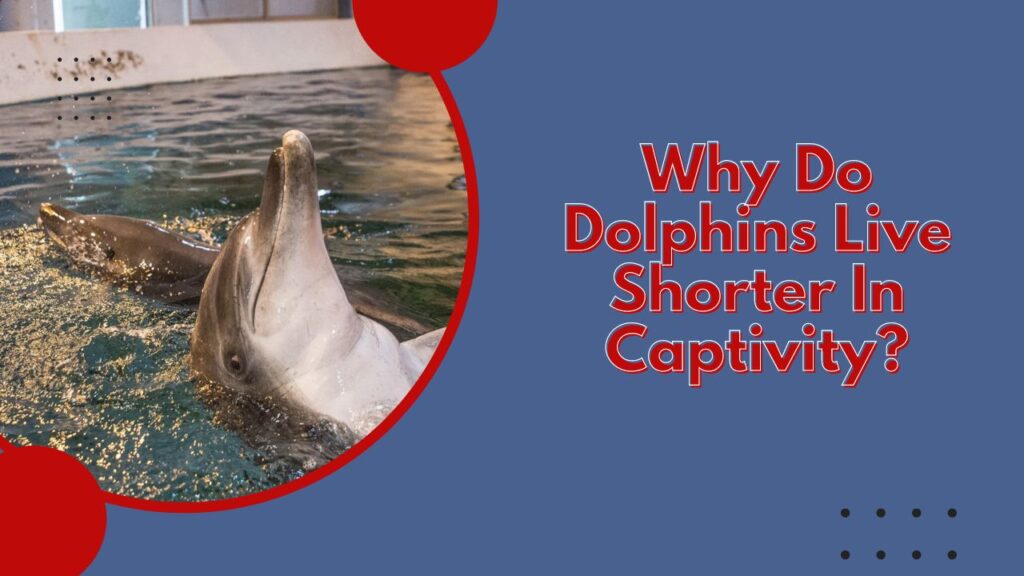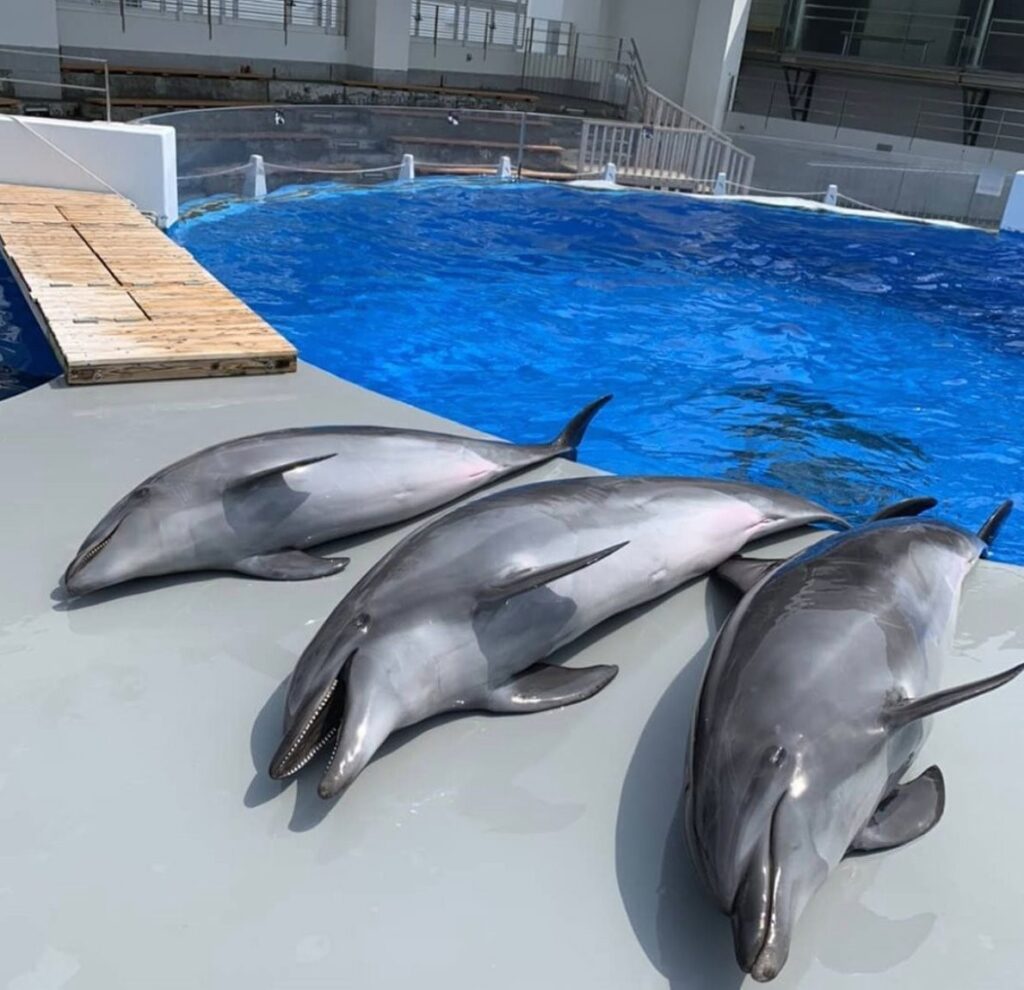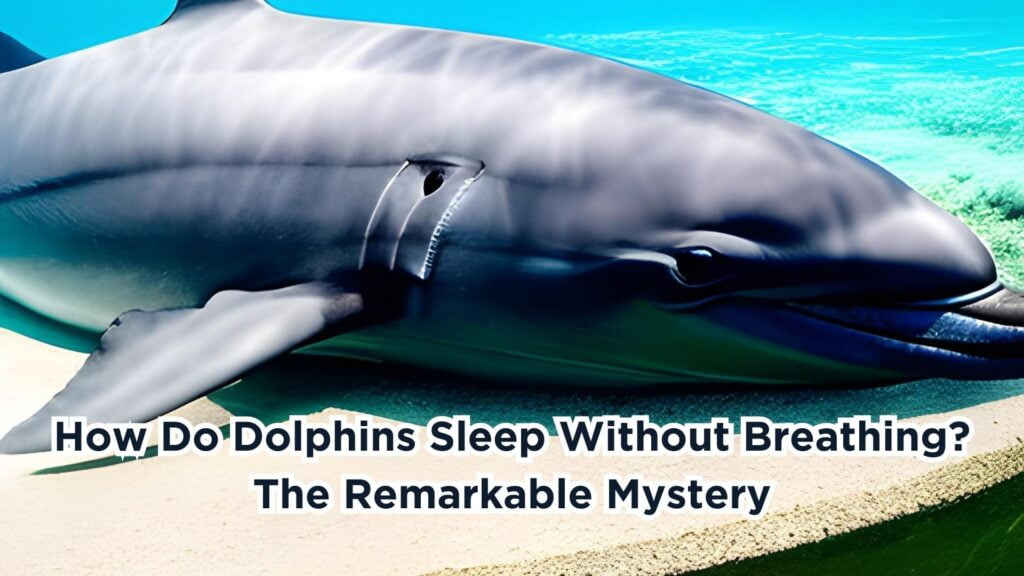
Why Do Dolphins Live Shorter In Captivity? Dolphins live shorter in captivity due to factors like stress, dietary changes, lack of social interaction, and limited space, which can negatively affect their overall health and well-being.
These factors can contribute to a higher mortality rate and a shorter lifespan compared to dolphins in the wild.
Dolphins kept in captivity are frequently housed in enclosures or tanks that are significantly smaller than their native surroundings, which limits their ability to move around and exercise.
The lack of their natural social networks and seclusion may also cause them to feel a great deal of stress.
Their nutritional needs may not be adequately met by the cuisine given to them in captivity, which could have an adverse effect on their health.
Because of this, dolphins kept in captivity typically live shorter lives than dolphins found in the wild. [Why Do Dolphins Live Shorter In Captivity?]
Table of Contents
- 1 The Captivity Effect
- 2 Physical Health Challenges
- 3 Social Dynamics At Play
- 4 Environmental Factors
- 5 Human Influence
- 6 Conservation Implications
- 7 Frequently Asked Questions Of Why Do Dolphins Live Shorter In Captivity?
- 7.1 Why Do Dolphins In Captivity Have Shorter Lifespans Compared To Those In The Wild?
- 7.2 Do Dolphins Suffer From Psychological Distress In Captivity, Affecting Their Health?
- 7.3 How Does Captivity Affect The Physical Health Of Dolphins?
- 7.4 Are There Differences In The Quality Of Care Between Wild And Captive Dolphins?
- 7.5 Can Measures Be Taken To Improve The Lifespan Of Dolphins In Captivity?
- 8 Conclusion
The Captivity Effect
It has been discovered that captive dolphins live shorter lives than their wild counterparts. The cramped quarters and demanding surroundings of confinement may be detrimental to their health and general welfare.
Dolphins kept in captivity frequently exhibit behavioral abnormalities such as heightened hostility and repetitive actions.
Because of the increased risk of accidents and decreased capacity for socialization and appropriate foraging, these changes result in shortened lifespans.
Dolphins kept in captivity frequently lack mental and physical stimulation, which has an adverse effect on their general health.
Their immune systems may be adversely affected by the chemicals used in captivity as well as the methods used to purify the water, leaving them more vulnerable to illnesses and infections. Collectively, these elements lead to the shorter life spans of captive dolphins.
See Also: What Continent Do Dolphins Live In? Enchanting Habitats!
Physical Health Challenges
Dolphins kept in captivity frequently have shorter lifespans as a result of various physical health issues. Ailments associated with stress are among the main causes.
Stress levels may rise as a result of being confined to a small area and cut off from social groups and natural ecosystems. [Why Do Dolphins Live Shorter In Captivity?]
Their immune systems may be weakened by this ongoing stress, leaving them more vulnerable to illnesses and infections.
Nutritional inadequacies are another major contributing factor. Dolphins have access to a wide variety of marine creatures in their natural habitat, which gives them a diet that is well-balanced.
But in captivity, their diet is frequently restricted and devoid of the essential diversity. Their general health may be harmed by this lack of vital nutrients, which could shorten their lives.
These physical health issues must be resolved if dolphins in captivity are to live longer and be in better health. [Why Do Dolphins Live Shorter In Captivity?]
In order to lower stress levels, this may entail giving them larger, more realistic enclosures and making sure their feeds are properly chosen to satisfy their dietary requirements.

See Also: Do Dolphins Live In The Pan Pacific Ocean?
Social Dynamics At Play
Dolphins that are kept in captivity typically live shorter lives because of the social dynamics involved. Loneliness and isolation have a big impact on their general wellbeing.
Their longevity and general well-being may be affected by the upheaval of the natural hierarchy inside the pod. [Why Do Dolphins Live Shorter In Captivity?]
Their shortened lifetime can be attributed to stress and anxiety brought on by a lack of social contacts and a natural habitat.
Enhancing their general well-being in captivity can be accomplished through offering enrichment activities and modeling organic social structures.
Environmental Factors
Dolphins kept in captivity have shorter lifespans, and environmental variables are one major contributing cause. A lack of stimulus and a restricted area are two main causes.
With so many oceans to explore and roam freely, dolphins in the wild are free to behave as they naturally would.
Their cramped quarters in captivity limit their range of motion, which raises their stress levels and decreases their opportunity for exercise.
Dolphins also benefit from cerebral and social stimulation, both of which are scarce in captivity. Because of their tremendous intelligence, they need complicated surroundings to keep their minds active.
Their general well-being is impacted by the lack of diverse stimuli, which can also result in boredom and sadness. [Why Do Dolphins Live Shorter In Captivity?]
Exposure to chemicals is another factor. In order to keep the water in their tanks clean, captive dolphins are frequently exposed to a variety of chemicals, including chlorine.
Their immune systems may be weakened and they may experience respiratory problems as a result of these toxins.
In conclusion, the lower longevity of dolphins kept in captivity is a result of limited space and stimuli, chemical exposure, and other factors.
To secure the health and lifespan of these magnificent animals, it is imperative to address these issues and create a more suited habitat.

See Also: Which Country Do Dolphins Live In? Habitat of Dolphins
Human Influence
Dolphins kept in captivity typically live shorter lives for a variety of reasons, chiefly because of human impact. In this sense, training effects are quite important.
Dolphins kept in captivity may experience stress and anxiety as a result of training practices including frequent human encounters. Stressors like these have the potential to weaken the immune system and make people more susceptible to illness.
Their normal habits are further restricted by their cramped quarters in captivity, which may worsen their general health. [Why Do Dolphins Live Shorter In Captivity?]
Furthermore, the food given to them in captivity might not adequately satisfy their nutritional demands, which could result in certain health problems.
Although every attempt is made to offer an appropriate environment and care, it is difficult to fully recreate the natural habitat of the dolphins. As a result, these elements play a part in the shortened life span of captive dolphins.

Conservation Implications
Since they are kept in small spaces with artificial surroundings, dolphins have shorter lifespans. Their immune systems are weakened by the stress these conditions cause.
Furthermore, their well-being is impacted by insufficient cerebral stimulation and few social encounters. It calls into question the morality of incarceration and animal welfare.
Promoting sustainable behaviors that place an emphasis on wildlife protection and conservation is essential to addressing this. It respects moral principles and advances the welfare of marine life by doing this.
See Also: Do Dolphins Live In Coral Reefs? Exploring the Ocean Connection
Frequently Asked Questions Of Why Do Dolphins Live Shorter In Captivity?
Why Do Dolphins In Captivity Have Shorter Lifespans Compared To Those In The Wild?
Dolphins in captivity face stressors like confinement and unnatural social dynamics, leading to health issues and reduced lifespans.
Do Dolphins Suffer From Psychological Distress In Captivity, Affecting Their Health?
Yes, captivity can cause psychological distress, leading to behaviors like pacing or self-harm, impacting their health and longevity. [Why Do Dolphins Live Shorter In Captivity?]
How Does Captivity Affect The Physical Health Of Dolphins?
Captive dolphins may experience higher disease rates, including respiratory infections and gastric ulcers, due to stress and the artificial environment.
Are There Differences In The Quality Of Care Between Wild And Captive Dolphins?
Despite efforts, it’s challenging to match the natural environment in captivity, impacting factors like diet, exercise, and mental stimulation, thus affecting overall health and lifespan.
Can Measures Be Taken To Improve The Lifespan Of Dolphins In Captivity?
Yes, we can improve their longevity and well-being by offering them more spacious, enriched settings, mental stimulation, appropriate veterinary treatment, and alternatives to traditional captivity such sanctuaries with semi-natural enclosures.
Conclusion
All things considered, the unique social and behavioral needs of dolphins in captivity account for their shorter lifetime.
Preserving the health and welfare of these amazing animals requires an understanding of and attention to these demands.
We may work to improve the standard of living for dolphins kept in captivity by putting ethical and environmentally friendly strategies into effect.

Mr. Das, a certified pharmaceutical scientist, holds a Bachelor of Science in Pharmaceutical Sciences and passionately contributes to dolphin conservation as a member of the committee in Bangladesh.


